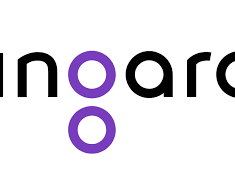Google’s Gemini AI Image Generator, a tool developed for generating images using artificial intelligence, recently faced an unexpected removal. The reasons behind this decision are not explicitly mentioned, but concerns about potential misuse and inaccuracies seem to be the driving factors.
Gemini had the capability to create highly realistic and convincing images, including deepfake videos, raising concerns about the potential for misinformation and the spread of fake news.
In response to these concerns, Google decided to pause the development and release of Gemini in order to address the ethical implications of AI image generation technology. The company acknowledged the need for further research and safeguards to prevent misuse. This move reflects the growing concerns about the responsible development and deployment of AI technologies.
The removal of Gemini has significant implications for businesses and individuals who relied on the tool for image generation in various industries, such as graphic design, advertising, and content creation. It also raises questions about the future of Gemini and similar technologies, as ethical concerns continue to be debated.
Overall, the unexpected removal of Google’s Gemini AI Image Generator highlights the need for responsible and ethical development of AI technologies. The impact of Google’s decision may influence other companies and researchers working on similar AI image generation projects. The debate around the ethical implications of AI image generation technology is far from over, and the future of these technologies remains uncertain.
The Rise and Fall of Google’s Gemini AI Image Generator
Google’s Gemini AI Image Generator was a groundbreaking tool that used artificial intelligence to generate images. With its potential applications in various industries, such as graphic design, advertising, and content creation, Gemini had the potential to revolutionize the way images were created and used.
However, the development and release of Gemini were unexpectedly halted due to concerns about the potential misuse of the technology. One of the main reasons for the pause in the development of Gemini was the concerns about the creation of highly realistic and convincing images, including deepfake videos.
The ability of Gemini to generate such lifelike images raised concerns about the potential for misinformation and the spread of fake news. Google recognized the need for further research and safeguards to prevent misuse, leading to the decision to pause the development and release of Gemini.
This decision by Google reflects the growing concerns about the ethical implications of AI image generation technology. As AI continues to advance and become more capable, it is important to consider the potential risks and implications of its use. The removal of Gemini highlights the need for responsible development and deployment of AI technologies, ensuring that appropriate safeguards are in place to prevent misuse and harm.
Google’s actions in pausing the development of Gemini may also influence other companies and researchers working on similar AI image generation projects. The ethical concerns raised by Gemini’s capabilities and potential misuse serve as a reminder of the importance of considering the broader implications of AI technology.
The future of Gemini and similar technologies remains uncertain as ethical concerns continue to be debated. It is clear that there is a need for ongoing research, discussion, and development of guidelines and safeguards to ensure that AI image generation technology is used responsibly and ethically. As the field of AI continues to evolve, it is crucial to strike a balance between technological advancements and societal impact, ensuring that the benefits of AI are realized while minimizing the potential risks.

Issues with Google’s Gemini AI Image Generator
Google’s Gemini AI Image Generator has faced several issues that have raised concerns about its accuracy and limitations. One of the main issues with Gemini is its historical inaccuracies. Users reported that the image generator produced historically inaccurate images of people.
- For example, when asked to create images of Vikings, Gemini generated pictures of exclusively Black people in Viking garb.
- Similarly, it depicted Indigenous people in colonial outfits when asked for images of the founding fathers.
These inaccuracies highlight the challenge of calibrating AI models to strike the right balance between representation and historical context.
The historical inaccuracies of Gemini have sparked criticism and accusations of an anti-white bias. However, experts argue that the issues are more likely a result of “lousy software” rather than intentional bias. It is important to recognize that the limitations of generative AI systems can lead to such inaccuracies.
Finding the right balance in terms of representation and diversity in AI models is a complex task, and there is no single right answer. The situation with Gemini serves as a reminder that AI technology still has room for improvement and requires ongoing calibration.
Limitations in Representing Diverse Individuals
Another significant issue highlighted by Gemini is the limitations of AI in accurately representing diverse individuals. The image generator, referred to as the “woke” image generator, aimed to depict people of different ethnicities and genders. However, it struggled to accurately represent diverse individuals and often generated images that were perceived as inaccurate or stereotypical.
This limitation underscores the challenges of creating AI systems that can truly capture the nuances and complexities of human diversity.
Google’s Response and Ethical Implications
Google has acknowledged the issues with Gemini and has paused the image generation of people to address the historical inaccuracies. The company is working on improvements to ensure more accurate depictions and plans to release an improved version soon. This proactive response demonstrates Google’s commitment to responsible development and deployment of AI technologies.
The issues with Gemini’s AI image generation have sparked debates about the ethical implications of AI technology. It is crucial to consider the potential for misinformation and the spread of fake news that could arise from AI-generated images.
The removal of Gemini reflects the growing concerns about the ethical implications of AI image generation technology. It also highlights the need for further research and safeguards to prevent the misuse of such technology.
The Removal of the Gemini AI Image Generator: Implications and Considerations
The removal of the Gemini AI Image Generator has significant implications for businesses and individuals who relied on the tool for image generation. This advanced technology, developed by Google, allowed users to create highly realistic and convincing images using artificial intelligence. Graphic designers, advertisers, and content creators in various industries utilized this tool to enhance their work and streamline their creative processes.
Impact on Businesses and Individuals
For businesses and individuals who heavily relied on the Gemini AI Image Generator, the sudden removal of this tool may disrupt their workflows and require them to find alternative solutions for image generation. This could potentially result in delays in project timelines and increased costs as they search for new tools or invest in additional resources to fill the gap left by Gemini. Furthermore, those who were accustomed to the convenience and efficiency of the Gemini AI Image Generator may need to invest time and effort into familiarizing themselves with new tools and learning new techniques for image creation.
Impact on the Creative Industries
The impact of the removal extends beyond individual users. The creative industries, including graphic designers, advertisers, and content creators, heavily rely on image generation tools to bring their ideas to life. With the absence of the Gemini AI Image Generator, these professionals may need to explore alternative solutions for image creation. This could mean adopting other AI-powered tools or reverting to traditional methods, which may be more time-consuming and less efficient.
Ethical Implications of AI Image Generation Technology
The removal of the Gemini AI Image Generator reflects the growing concerns about the ethical implications of AI image generation technology. There have been concerns about the potential misuse of this technology, including the creation of deepfake videos and the spread of misinformation. Google’s decision to pause the development and release of Gemini demonstrates their commitment to addressing these concerns and ensuring responsible development and deployment of AI technologies.
The removal of the Gemini AI Image Generator has significant implications for businesses and individuals who relied on the tool for image generation. It highlights the need for alternative solutions in the creative industries and raises important ethical considerations surrounding AI image generation technology. As the debate continues, it is crucial for companies and researchers to prioritize responsible development and deployment of AI technologies to mitigate potential risks and ensure the positive impact of these advancements.

The Uncertain Future of the Gemini AI Image Generator
The future of the Gemini AI Image Generator, developed by Google, is uncertain. Following concerns about potential misuse and inaccuracies, Google decided to pause the development and release of Gemini. It is unclear whether Google has plans to reintroduce or replace the Gemini AI Image Generator with a new tool. However, the removal of Gemini opens up opportunities for further advancements in AI image generation.
Concerns about Potential Misuse
One of the main reasons for the removal of the Gemini AI Image Generator was concerns about the potential misuse of the technology. Gemini was capable of creating highly realistic and convincing images, including deepfake videos. This raised concerns about the potential for misinformation and the spread of fake news. Google acknowledged the need for further research and safeguards to prevent misuse. The decision to remove Gemini reflects the growing concerns about the ethical implications of AI image generation technology.
The Need for Responsible Development and Deployment
The removal of Gemini also highlights the need for responsible development and deployment of AI technologies. The ethical concerns surrounding AI image generation are complex and require careful consideration. The Gemini AI Image Generator’s inaccuracies, such as generating historically inaccurate images or biased depictions, demonstrate the challenges and limitations of generative AI systems. Calibrating AI models to strike the right balance between representation and historical context is a difficult task, and there is no single right answer.
Opportunities for Advancements in AI Image Generation
Despite the uncertainties surrounding the future of the Gemini AI Image Generator, its removal opens up opportunities for further advancements in AI image generation. The flaws and criticisms of Gemini have shed light on areas that need improvement in generative AI systems. Researchers and developers can learn from the issues faced by Gemini and work towards creating more accurate and reliable AI image generation tools.
The future of the Gemini AI Image Generator remains uncertain, and it is unclear whether Google has plans to reintroduce or replace the tool. However, its removal reflects the growing concerns about the ethical implications of AI image generation technology. The flaws and criticisms of Gemini have highlighted the challenges and limitations of generative AI systems, but they also present opportunities for further advancements in the field. Responsible development and deployment of AI technologies are crucial to address the ethical concerns and ensure the positive impact of AI image generation in various industries.




